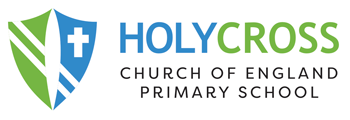
Pupil, Sport and Covid-19 Catch Up Premiums
Please find details of how we have used the sport and pupil premium grants to improve outcomes for our pupils:
Pupil Premium Information
Covid-19 Catch Up Premium
PUPIL PREMIUM
Pupil Premium is allocated to schools of statutory school age from low income families who are eligible for Free School Meals (FSM), for children who are looked after by the Local authority (LAC) and to children whose parents are currently serving in the Armed Forces. Schools are able to spend the pupil premium as they see necessary to support the children who are in receipt of it. However, for accountability purposes, schools are required to show clearly how and where the money is spent.
Purpose:
Pupil Premium is given to schools to provide additional support for children from low income families, children who are looked after and children with parents who are in the Services. The main purpose of the extra funding is to narrow the attainment gap between pupils from disadvantaged and or disrupted backgrounds and other pupils.
Funding
In most cases Pupil Premium is paid direct to schools. Schools decide how to use the funding, as they are best placed to assess what additional provision their pupils need. At Holy Cross Church of England Primary School, funding is reviewed and targetted according to need annually. It may differ each year according to the level of the funding and needs of the children but the provision we offer includes:
- subsidising school visits and activities which we would be funded or partly funded from
parental contributions - breakfast club provision
- additional support to help children who are not making as much progress as we would expect in maths and/or reading and writing
- Staff training and professional development
- support for children who may have specific social or emotional needs
Accountability
The Government believes that head teachers and school leaders should decide how best to use the Pupil Premium to ensure the best impact on pupils’ attainment and achievement. Schools leaders are held accountable for the impact of Pupil Premium spending through:
- the performance tables which show the performance of disadvantaged pupils compared with their peers
- the new Ofsted inspection framework, under which inspectors focus on the attainment of pupil groups, in particular those who are in receipt of the Pupil Premium
- the reports for parents that schools must publish online
SPORTS PREMIUM
In September 2013 the Government in England started providing funding to Primary Schools to support schools in providing High Quality PE and School Sport. This funding has been jointly provided by the Departments for Education, Health and Culture, Media and Sport, and has seen money going directly to primary school head teachers to spend on improving the quality of physical education and sport for all their children. It has recently been announced that this funding will continue for at least the next two academic years. This funding is ring-fenced and can only be spent on physical education and sport provision in schools.
We are delighted to announce that the school will receive £16,000 plus £5 per pupil. This funding should be spent to improve provision in three key areas:
- Curriculum PE
- School Sport
- Healthy and Active Lifestyles.
From September 2013, schools have been held to account over how they spend their additional, ring-fenced funding. Ofsted will strengthen the coverage of PE and sport within the 'Inspectors’ handbook' and supporting guidance so that both schools and inspectors know how sport and PE will be assessed in future as part of the school’s overall provision.
Each year, following audits and self-reviews, particular areas are highlighted as needing to be developed within PE and School Sport.
This coming academic year 22/23, the funding will be used to support:
- Continued CPD within the staff
- Resourcing to support development of stamina and fitness
- Enhancement opportunities including provision of specialist coaches within PE sessions
- Transportation of children to swimming, cluster competitions, Active Kids,
- Club provision
- Activities supporting Emotional wellbeing
Holy Cross CofE Primary School
Tel: 01553 810394
Email:
office@holycross.norfolk.sch.uk
This school is part of the
Diocese of Ely Multi-Academy Trust
School Address:
Holy Cross CofE Primary School
School Road,
Runcton Holme,
King's Lynn
Norfolk.
PE33 0EL
DEMAT Office Address:
All Rights Reserved | Holy Cross CofE Primary School | Privacy Policy
Designed by We Are Doodlebug
